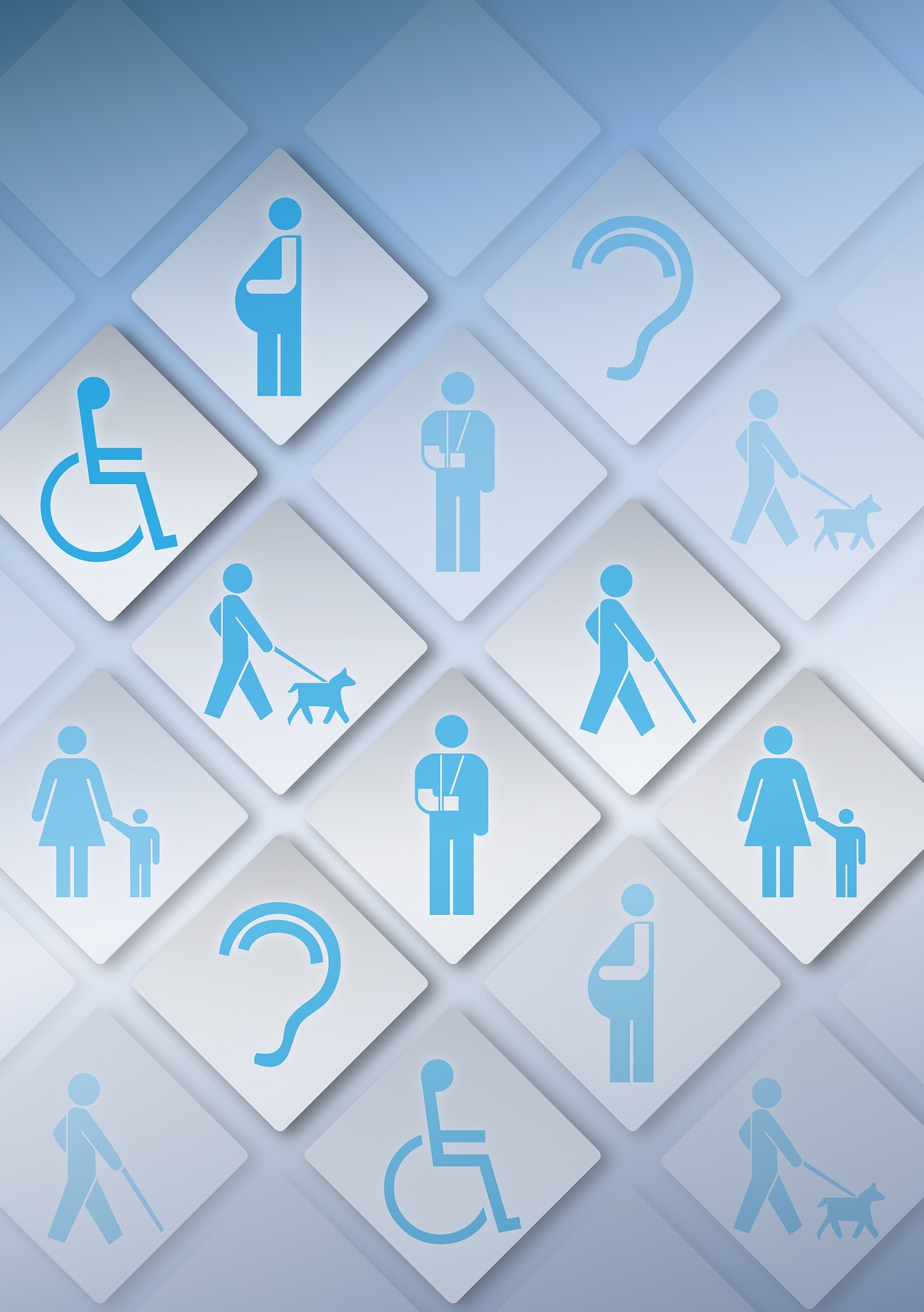Back when I still thought I was cishet, I once got into a discussion with a trans colleague of mine about using gendered language, like calling assertive yang energy ‘masculine’, or receptive yin energy ‘feminine’ (we worked in a spiritual bookstore). At the time, I didn’t see a problem with using ‘masculine’ and ‘feminine’ as descriptors. But my colleague implored me to reconsider my phrasing. Why should I, I asked? Their answer stuck with me:
“Because,” they sighed, acting out their exasperation, “it’s so easy for you.”
Then it clicked for me. Whether or not I saw any important difference in my use of language, it was having real effects on other people, effects I might not understand. And if that was the case, which my colleague was saying it was, why not make the small change in my language that would matter quite a lot to people around me? It’s so easy. It goes a long way. It doesn’t cost me a thing, but it makes a big difference in the lives of others.
The same is true for ableist language. ‘Lame’, ‘crazy’, ‘dumb’, ‘schizo’, ‘deaf’. We throw around a lot of words whose primary purpose is to describe a mental or physiological condition. Often without thinking, we’re supporting damaging stereotypes about disabilities. But we can change this kind of language, and once we learn to catch it, it’s so easy to do.
The Difference Between Offensive and Damaging
Ableist language is more than just offensive. When we talk about words being ‘offensive’, it invites naysayers to counter that people shouldn’t get their feelings hurt so easily. But that misses the point. Avoiding offensive language isn’t about protecting people’s fragile feelings. It’s about preventing harm, especially in already vulnerable demographics.
We need to reframe conversations about marginalizing language to consider the actual damage it causes. Using a word like ‘lame’ as a disparaging catch-all (which, full disclosure, is a habit I’m still working to change) means that actual lameness—the inability to walk—registers as less than non-lameness, the ability to walk. It pushes people who can’t walk into the margins of what’s considered normal and good.
So when it comes time to build out a new restaurant space, for example, a designer who’s acclimated to ableist language isn’t necessarily thinking “let’s design this space so it’s welcoming for people. Some people can walk, some people can’t. Some people can see and hear, some can’t. Some people are fat, some are not.” Instead, they’re more likely approaching it like “let’s design this space for ‘normal’ people,” making concessions for others only if the law requires it, or if it serves a particular marketing point.
Consequently, people who don’t walk have a harder time accessing most restaurants, and other places of business. They deal with more barriers in day-to-day life, because they’ve been pushed to the margins of ‘normal’. This is not just about hurt feelings. It’s real damage and hardship in people’s lives. And it starts with our language.
Marginalizing language serves to ‘other’ minority demographics, and lays the groundwork for structural barriers to their success and enjoyment of life.
Changing Our Language is the Easy Part
Lucky for us, language is easy to change. Because this is also not about censorship or muzzling abled people. Rather, it’s an invitation to dialogue in a more sophisticated way. Eschewing ableist language has the added benefit of encouraging more precise and descriptive words.
Instead of calling a movie “lame,” you could say it was “inert”, “underdeveloped,” “hackneyed” or “fraught with sophomoric affectation” (I haven’t seen the new Quentin Tarantino film, by the way, but you can borrow these words for your review). This verbiage does a better job of getting the point across, and it doesn’t marginalize anyone, except a lousy filmmaker.
We’ll have to rewire some habits. That’s the not-quite-as-easy part. But the best way to break a habit is to switch it out with a new one. So here are a few more substitutes to get the lexical pistons pumping:
- Dumb – uneducated, boring
- Crazy – irrational, intense
- Schizo – erratic, chaotic
- Idiotic – ignorant, thoughtless
- Blind – unaware, switched off
We Can Have These Conversations, so Disabled People Don’t Have To
Let’s assume the average disabled person is exhausted of trying to educate us all about these dynamics, just as my trans colleague was exasperated by patiently educating me about the damage of gendered language. We whose lives are not directly damaged by ableist language can support the disabled by having these discussions with others—so disabled people don’t have to.
Call-outs don’t need to be sanctimonious or confrontational. Let’s say you hear someone like me thoughtlessly toss out the word ‘lame.’ Here are a few responses you could use to draw my attention to my blunder:
- “That’s a bit ableist, don’t you think?”
- “Do you have a problem with lame people?”
- “I wonder how a lame person would feel about that.”
- “You know, a dear friend and mentor of mine is lame.”
- “Hang on. I think maybe you meant ‘vapid’ instead of ‘lame’.”
Even a simple “‘Lame’? Really?” would give me pause to reconsider my outdated choice of words, and why it might be important to change.
Being brave enough in abled company to speak up for the disabled will open the doors to some wonderful conversations. Of course, it also might push a few hot buttons with certain family members at holiday dinners, but you don’t have to get into fights about it. Simply bringing people’s awareness to the issue will help switch people on, and encourage progress in our use of inclusive language.
Little by little, we can help remove barriers so people—lots of different people with all kinds of abilities and disabilities—can enjoy easier, happier lives. And please. If you hear me say ‘lame’ at a dinner party, don’t tiptoe around my fragile feelings. Just call me on it. You’re doing everyone a favor.

